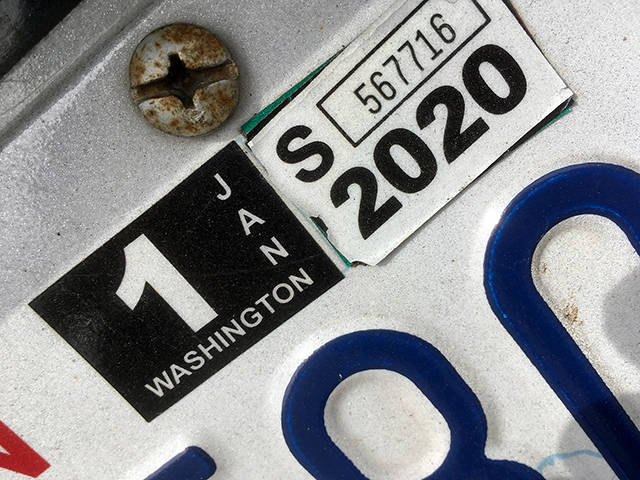OLYMPIA — A unanimous state Supreme Court on Thursday struck down the $30 car-tab initiative passed by voters in 2019.
Justices said the measure violated provisions of the state Constitution which limit the scope of ballot measures to no more than one topic. Eight of nine justices also concluded the subject of Initiative 976 as described on ballots was unconstitutional because it misled voters.
“The people of our state have the power to propose and approve legislation. When the people act in their legislative capacity, they are, like any other legislative body, bound by constitutional constraints,” wrote Justice Steven Gonzalez for the majority.
The initiative, he continued, “contains more than one subject, and its subject is not accurately expressed in its title. Accordingly, it is unconstitutional.”
The ruling comes nearly a year after 53% of state voters — including 58.2% in Snohomish County — approved Initiative 976, which, like previous car-tab-limiting measures, was the handiwork of serial initiative promoter Tim Eyman.
Even before the results were final, a coalition of transit agencies and local governnents, led by the city of Seattle, challenged its legality in court.
“We knew this initiative had some fairly obvious legal problems from the outset.” said Seattle City Attorney Pete Holmes in a statement. “Mr. Eyman has never sponsored an initiative that’s withstood legal challenge, so today’s decision shouldn’t come as a surprise to anyone. The court rightly recognized that a clearly inaccurate initiative title and logrolling subjects is unlawful.”
Backers of the measure vowed to continue their fight.
“I am deeply disappointed that the court ignored taxpayers, rejected the holding of the lower court, and struck down the voter approved I-976,” sdaid Sen. Steve O’Ban, R-University Place, in a statement. In Pierce County, 65% of voters supported I-976.
The measure sought to limit the annual vehicle registration fee to $30 and axe vehicle-license charges levied by local transportation districts in Everett, Lynnwood and 60 other cities.
It also called for slashing the motor vehicle excise tax collected by Sound Transit, a pivotal source of revenue for carrying out voter-approved light-rail expansion known as ST3. And it aimed to force the regional transit authority to retire or refinance some outstanding construction bonds and switch to using vehicle values in Kelley Blue Book when calculating the Sound Transit excise tax on vehicles.
Sound Transit officials contended the wording of the initiative did not affect current bonds. They have said the measure does not limit the agency’s authority to collect the excise tax until the bonds to which the tax is contractually pledged as security are retired.
Justices affirmed that position in their ruling.
Last November, before all the votes had been counted, a coalition of local governments and public transit agencies sued to block Initiative 976 from taking effect.
A lower court, and later the state Supreme Court, ordered the measure not be implemented until resolution of the legal challenge.
At a June hearing, several Supreme Court justices seemed concerned about whether the measure’s title misled voters and the content covered too many subjects.
There were questions about the assertion of the ballot title that the measure would “limit annual motor-vehicle-license fees to $30.” In actuality, the lowest fee would be $43.25 because certain charges imposed by the state Department of Licensing were not covered in the initiative and continue to be collected.
State attorneys said the notion of $30 car tabs has been debated for a long time and voters understand it as a political characterization synonymous with paying lower vehicle registrations fees.
Opponents countered that the law doesn’t allow for political phrases in ballot titles.
The court ruling can be found online at www.courts.wa.gov. The case is Garfield County Transportation Authority, et al. v. State of WA, et al.

